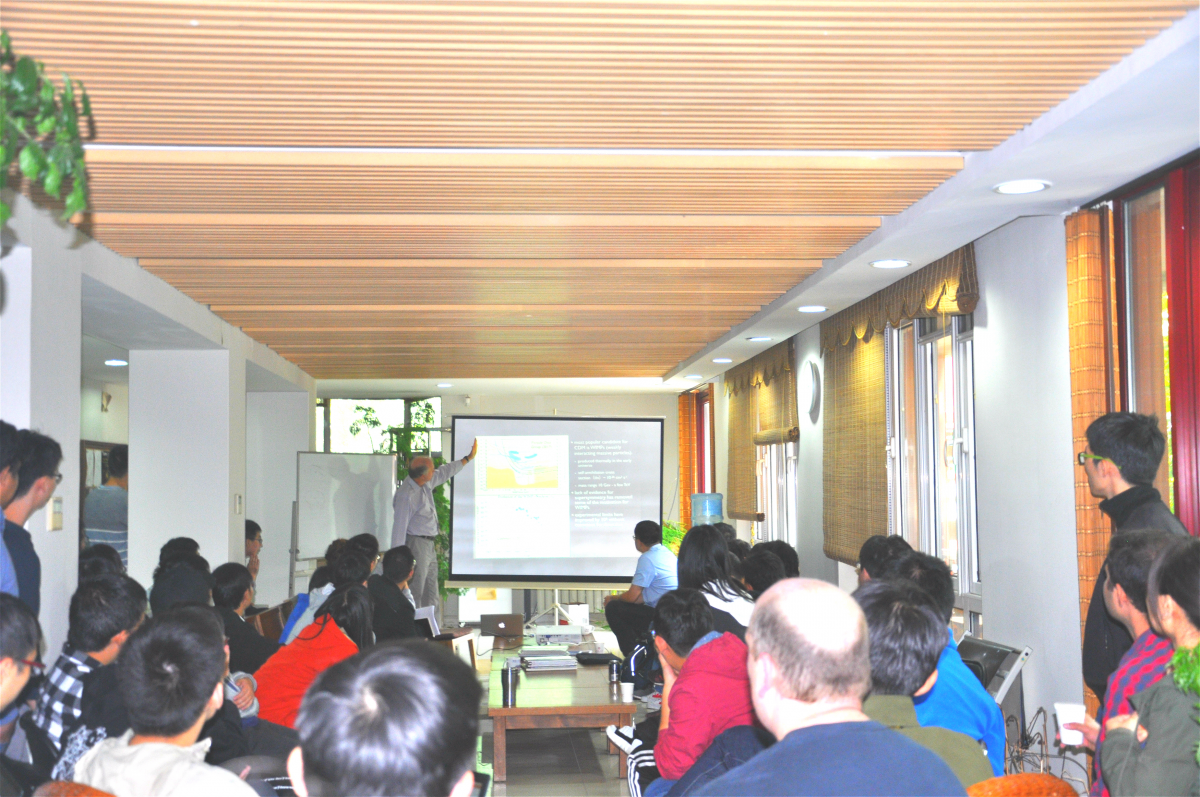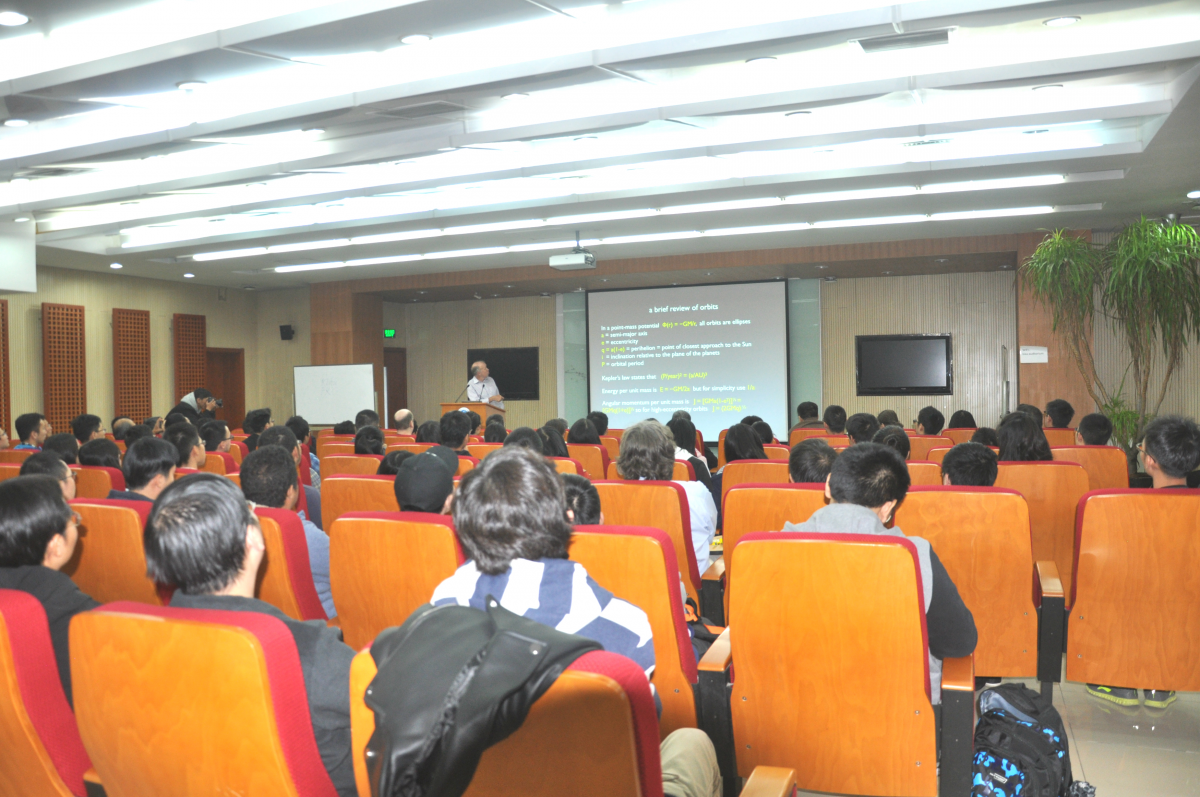Public Lecture
On October 8-9, 2018, ‘Scott Tremaine Series Academic Activities’ was successfully held at Peking University (PKU). The series academic activities invited Scott Tremaine, Fellow of Royal Society of London, Royal Society of Canada, and the National Academy of Sciences, Professor of the Institute for Advanced Study, Princeton, and was composed with a public lecture, an academic lecture, and an Astro-PH Seminar. The academic activities were organized by Kavli Institute of Astronomy and Astrophysics at PKU and Office of International Relations at PKU and were supported by the Science Department of PKU.

Professor Scott Tremaine
At 4 p.m. 8th. Oct., Professor Scott Tremaine delivered a public lecture with the topic ‘The Long-term Stability of Planetary systems’ in Sunshine Hall in Yingjie Overseas Exchange Center. The lecture was hosted by Prof. Fukun Liu, Director of Department of Astronomy. More than a hundred students and faculty from PKU and other Universities attended the talk. On the public lecture, Prof. Tremaine gave a possible explanation for the long-term acts on the planetary orbits, and asserted that with the further development of computer science, we may answer the following questions: How has the Earth's orbit evolved throughout geological history, and what is the Earth's ultimate fate? What determines the number and spacing of the planets? And what are the likely properties of other planetary systems? The lecture ended with warm applause from the audience. Then the attended faculty and students asked a series of questions on this topic and received patient and professional answers from Prof. Tremaine.

Astro-PH Seminar
At 1:30 p.m. 9th. Oct., a special Astro-PH Seminar was held at the common area of the second floor of KIAA building. The seminar was hosted by Subo Dong, Researcher of KIAA. Several students from DoA and KIAA attended the seminar and had an intensive discussion with Prof. Tremaine.

Academic Lecture
At 4 p.m., Prof. Tremaine delivered an academic lecture with the topic ‘Comets, unseen planets, and the outer fringes of the solar system’ at the auditorium of KIAA. The lecture was hosted by Prof. Qingjuan Yu, tens of students of faculty attended the lecture.
Tremaine, along with Peter Goldreich, correctly predicted that shepherd moons created Saturn's thin F ring, as well as the thin rings of Uranus in 1979. The Saturnian moons Prometheus and Pandora were first observed in 1981 and shepherding moons were found around Uranus' rings in 1986. Tremaine cowrote the book Galactic Dynamics with James Binney, which is often regarded as the standard reference in the field and has been cited more than three thousand times in scholarly publications. Tremaine, along with collaborators at the University of Toronto, showed that short period comets originate in the Kuiper belt. Tremaine is credited with suggesting that the apparent "double nucleus" of the Andromeda Galaxy was in fact a single ring of old red stars.
PKU News: http://www.oir.pku.edu.cn/info/1035/4070.htm